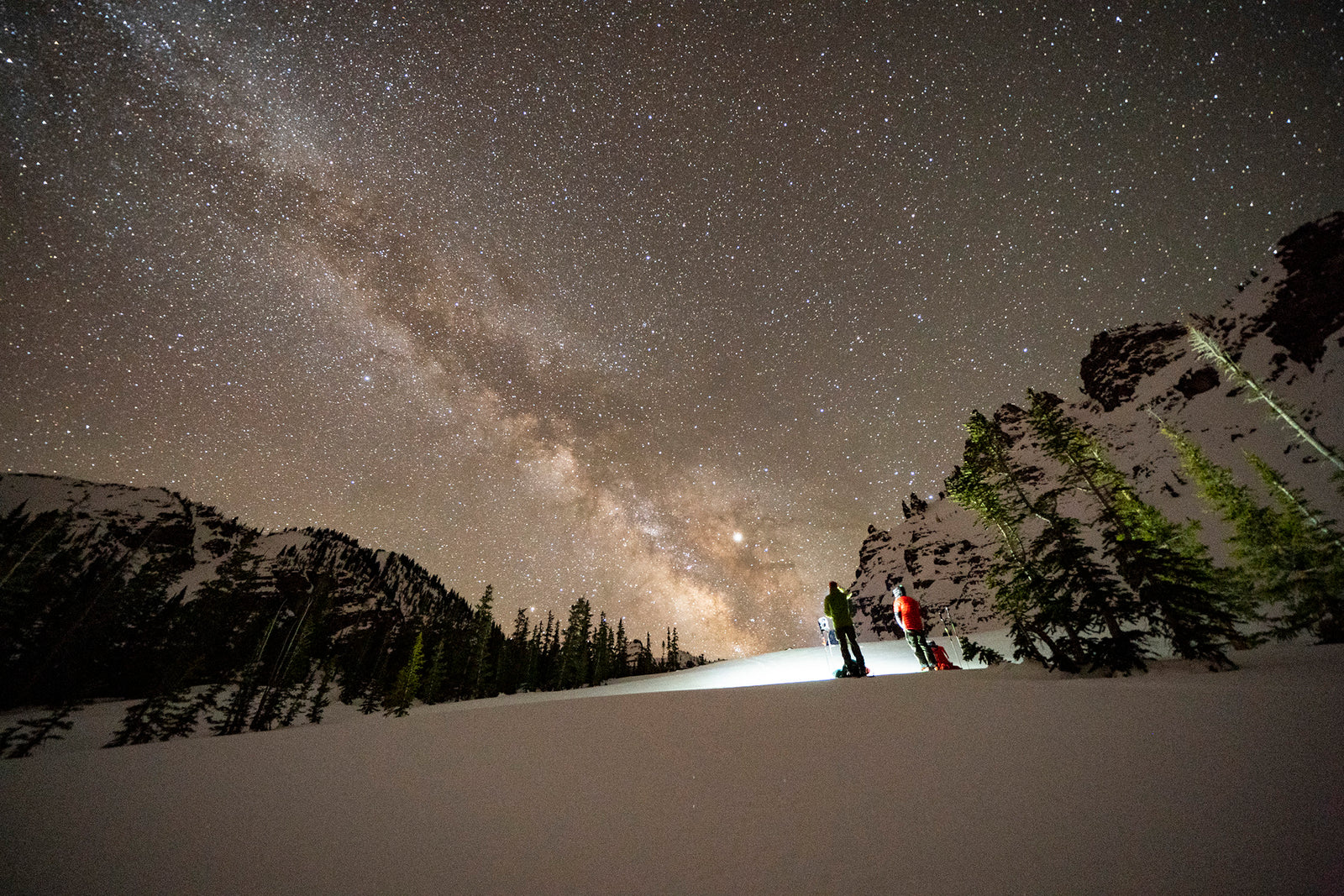Leave No Trace Tips: Winter Edition
Ahh, the winter wonderland, a muffled landscape of snowy trails and slopes. Resplendent in white, untouched by man… well, until we start showing up in droves to recreate. But just like in the summer, there are steps we can take to keep the winter wilderness wild by adhering to the Leave No Trace Winter Use Principles of backcountry travel and recreation. These principles cover everything from disposing of waste, distancing from vulnerable wildlife, and best practices for traveling on winter trails and skin tracks. The goal is for the wilderness experience to remain as pure as possible for yourself and for others and to reduce our impact on wild places.Leave No Trace Winter Use Principles:
Plan ahead and prepare
Travel and camp on durable surfaces
Dispose of waste properly
Leave what you find
Minimize campfire impacts
Respect wildlife
Be considerate of other visitors
Below are some of the principles most relevant in this time of winter recreation during COVID-19.Plan Ahead And Prepare For Winter Conditions
Planning and preparation are at the heart of Leave No Trace, and with all the additional variables inherent in the winter environment, they take on even more importance. Prior to your outing, check avalanche and weather reports. This information should inform your decision of whether now is the right time to travel, and if so, where to go, what to pack, and the time you should allot to your outing (keeping in mind that the days are short in the winter). Prepare by packing your own food and snacks and bringing essentials including hand sanitizer and a face mask. In the course of your research, check whether warming huts and backcountry cabins are open this winter—many are closed to limit the spread of COVID-19. Prepare for extreme weather, hazards and emergencies by carrying extra layers, preparing your vehicle for winter travel, and when traveling in avalanche terrain, carrying and using an avalanche beacon, probe and shovel. Educate yourself by taking a winter backcountry travel course, many of which are available through AIARE. Never visit the backcountry alone; leave your itinerary with family or friends and approach this winter with respect. With COVID-19 impacting every facet of our lives, expect Search & Rescue responses to be slower, if available this winter, so consider dialing back your risk taking. With increased visitation, it’s also suggested that you plan to visit during off-peak times. If it’s crowded when you arrive, have an alternate destination available.Dispose Of Waste Properly
Leave No Trace outlines the best methods for disposing of or packing out human waste, which requires either bringing along a shovel or a wag bag. If your plan is to bury human waste in the snow, locate a place away from travel routes and at least 200 feet (70 adult steps) from water sources. Bring bags to dispose of your dog’s waste if it is within range of the trail or likewise bury it. Some additional season-specific highlights to consider include packing out everything you bring with you including obvious items like food scraps (yes pistachio shells, yes sunflower seeds, yes tangerine peels) and trash, but also that pile of wax shavings from scraping your skis or snowboard. Scrape your skis onto a piece of cardboard or other surface that you can easily gather the shavings back up to dispose of—even better do it at home. It’s also suggested to flatten all snow shelters, igloos or wind breaks to naturalize the area before you leave. In the wintertime, animals are especially vulnerable. Give wildlife extra space in the winter and observe them from a distance. And lastly, when traveling in the backcountry share the trail and be courteous, this includes following the holy grail of separating the ski and snowshoe tracks and avoid hiking on ski or snowshoe tracks. Amen. Freshen up on all seven Winter Use Leave No Trace Winter principles ahead of your next outing. Annie Fast writes about winter sports and outdoor adventures from her home in Bend, Oregon.You can read more about her and her work at anniefast.com
Annie Fast writes about winter sports and outdoor adventures from her home in Bend, Oregon.You can read more about her and her work at anniefast.com



